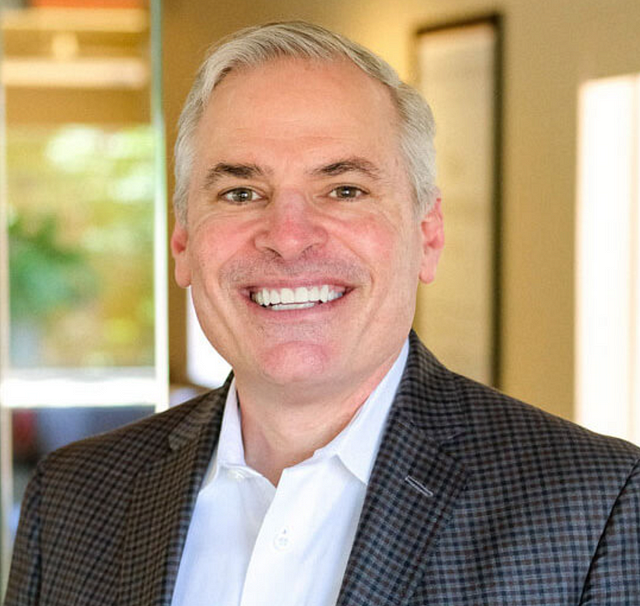The first thing is you’ve got to have a cohesive team of people leading that. So whether it’s a small organization of five people sitting around a table, or whether it’s a larger organization, the leadership team. It’s not about prestige or authority, it’s about responsibility. They have to be behaviorally cohesive. They have to trust each other at a fundamental, interpersonal, emotional level and they have to do that so they can argue well and make good decisions, and then they’re going to hold each other accountable for those decisions. That’s what’s going to make the organization succeed. Another thing they have to do is to be completely aligned and on the same page. Because if you want to scale your organization, but people are pointed in slightly different directions, that’s a problem.
As part of my series about “individuals and organizations making an important social impact”, I had the pleasure of interviewing Pat Lenconi at the World of Business Ideas (WOBI) Forum in New York City, New York. Pat Lencioni is a New York Times best-selling author and thought leader. In 2008, he was named by Fortune magazine as “one of the new gurus you should know.” Pat is the architect of organizational health, a concept that he calls the last competitive advantage in business today.
Thank you for joining us in this interview series, Pat. Our readers would love to “get to know you” a bit better. Can you tell us a bit about your ‘backstory’?
I’ve been running my consulting firm with some good friends for the last 25 years called The Table Group. We started that after I had spent the early part of my career working for some technology companies and with a management consulting firm. We just saw that the human side of business was missing and I had spent so much of my career before that working on the smart side trying to help them figure things out around strategy and marketing. I just thought, you know, the human side is where the real opportunity for improvement is. So we started this company 25 years ago, and I wrote a book on kind of a whim. I decided to write it as a fable and to make a long story short, I’m 13 books into it.
We’ve worked with some of the most wonderful and amazing well- known and small and unknown organizations around the world, and found that the desire for what we call organizational health is very strong. When you can give people practical solutions to help human beings that work there get more done in less time, they feel more fulfilled in their work, and it’s a competitive advantage. Now, the one thing I would say is that we’re not soft or touchy-feely. I have a real bias for practical things, but the human side of life is not easily captured on a spreadsheet.
Thank you for sharing that with us. Let’s talk about scaling a business from a small startup to a midsize and then a large company. Based on your experience, can you share with our readers the “5 Things You Need to Know To Successfully Scale Your Business”?
The first thing is you’ve got to have a cohesive team of people leading that. So whether it’s a small organization of five people sitting around a table, or whether it’s a larger organization, the leadership team. It’s not about prestige or authority, it’s about responsibility. They have to be behaviorally cohesive. They have to trust each other at a fundamental, interpersonal, emotional level and they have to do that so they can argue well and make good decisions, and then they’re going to hold each other accountable for those decisions. That’s what’s going to make the organization succeed. Another thing they have to do is to be completely aligned and on the same page. Because if you want to scale your organization, but people are pointed in slightly different directions, that’s a problem.
And, a little bit of daylight between the leaders in an organization that wants to scale is going to become the “vortex effect”. It’s going to look like blinding light in the eyes of people. It’s going to be confusing. So, that old cliché about getting people rowing in the same directions, but they really have to be in lockstep making sure there’s complete alignment and clarity around some basic questions about why do we exist? How do we behave? What business are we in? How are we going to be different from our competitors? And what’s the most important priority right now?
Then what you have to do is to reinforce that and if an organization is going to scale, it can’t rely on the heroics of the leaders to be around all the time to remind people they need to put just enough structure in place to reinforce the answers to those questions around alignment without bureaucratizing it. So what I find as companies that are trying to scale, when they start is that they don’t want any structure, and that’s my bias but then they start to grow and they realize that lack of structure is making things hard. So they over structure things and the pendulum swings too far. So the idea is how do I put in the minimum amount of structure in my organization to make sure that our culture and our direction and our strategy is being reinforced in the way we make decisions and do things, but that doesn’t weigh people down with bureaucracy and protocol. Make sure that you’re clear and everybody is crystal clear and aligned, and then put just enough structure in place to reinforce that so that everyday work continues to build that culture, even when you’re not around to remind them.
Thank you so much for your time and for sharing your expertise, Pat.


